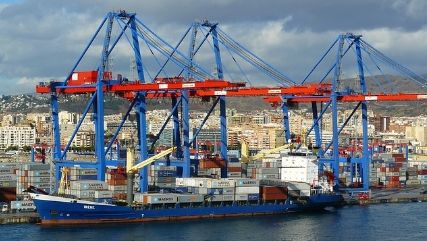What is the difference between CIF and FOB?
Introduction:
CIF (Cost, Insurance, and Freight) and FOB (Free On Board) are crucial shipping terms employed in international trade to delineate the responsibilities and commitments of both buyers and sellers during the exchange of goods.
what is CIF :
CIF, an acronym for Cost, Insurance, and Freight, is frequently utilized in shipping and freight when goods are dispatched to a designated destination port. This term explicitly outlines the risks, responsibilities, and expenses borne by each party involved in the sale and transportation of goods. In a CIF arrangement, the seller assumes responsibility for the cost of the goods, insurance coverage during transit from the seller's location to the destination port, freight or transportation of goods to the agreed-upon destination port (inclusive of loading onto the vessel), and the risk of damage/loss until the goods pass the ship's rail at the port of shipment.

what is FOB:
FOB, or 'Free On Board,' is a term employed in the international shipping trade to specify the point at which the seller's responsibility for the goods concludes, and the buyer assumes ownership along with any associated costs. The term FOB is typically followed by a specific location, indicating the named port where the transfer of risk occurs. In a FOB agreement, the seller is responsible for the cost of loading goods onto the vessel, the goods until they pass the ship's rail at the named port of shipment, and the cost of transporting goods to the port of shipment. This includes loading charges but excludes charges once the goods are on board, such as freight, insurance, and unloading costs.
Key Differences between CIF and FOB:
Responsibility for Freight and Insurance:
- CIF: Seller covers freight and insurance costs.
- FOB: Buyer is responsible for freight and insurance costs.
Transfer of Risk:
- CIF: Seller's responsibility until goods pass the ship's rail at the destination port.
- FOB: Seller's responsibility until goods pass the ship's rail at the port of shipment.
Cost Allocation:
- CIF: Seller covers total cost of goods, freight, and insurance.
- FOB: Seller covers cost of loading goods onto the vessel; buyer covers transportation, insurance, and other charges once goods are on board.
Control over Logistics:
- CIF: Seller has more control over logistics.
- FOB: Buyer has more control over logistics, including carrier and insurance choices.
Buyer Flexibility:
- CIF: Buyer has less flexibility as the seller arranges transportation.
- FOB: Buyer has more flexibility to choose carriers and negotiate shipping rates.
Destination Port:
- CIF: Goods shipped to a specific destination port.
- FOB: Goods shipped from a specific port of origin.
Related articles

 WeChat of CBiBank
WeChat of CBiBank